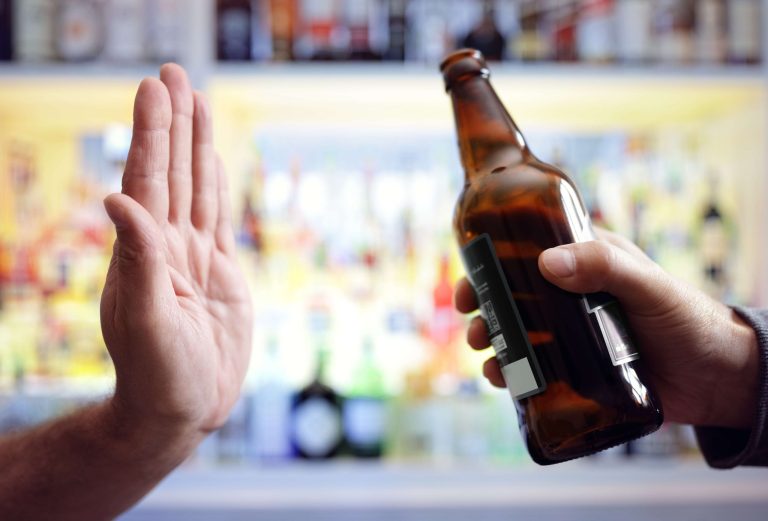We were all just sitting around and getting drunk, perfectly content to not really do anything together. Sometimes we would watch a show, but even that become untenable for me after a couple of drinks because I did not have the attention span for it. It’s hard to fill that time, especially when dealing with alcohol cravings and triggers. This is important to remember when thinking about boredom.
- Being sober encompasses more than simply abstaining from substances; it signifies a profound transformation of one’s life, fostering personal growth and a commitment to well-being.
- By embracing sobriety as a steadfast commitment, individuals can develop the necessary skills and strategies to navigate potential triggers and temptations, reducing the risk of relapse.
- Depending on the severity of the symptoms, your doctor may even recommend medication to help treat depression and anxiety.
- However, research suggests that while 12-step groups are effective, people often don’t continue their involvement at beneficial levels over the long term.
- Over time, our ability to cope and come up with solutions that work for us becomes easier and easier.
While this approach may not be suitable for everyone, it can be a stepping stone for those who struggle with lifelong sobriety or face significant barriers to abstinence. Some individuals find value in harm reduction strategies, prioritizing minimizing the negative consequences of substance use rather than complete abstinence. These approaches, such as moderation management, acknowledge the challenges of abstaining for specific individuals and aim to promote responsible and controlled substance use. It’s vital to note that this does not apply across all drug categories — having one beer might be easier to manage than a heroin habit.
Fears About Sobriety That Will Sabotage Your Recovery
People may want to feel numb so they can overlook the bad things in their life. That often leads to being unable to see or enjoy the good as well. That’s not the case and many people find tremendous value in their sobriety, even if they didn’t go to the darkest place some people with addictions do. In fact, more and more people are becoming “sober curious” as a way to have a healthier, more balanced life. Sober living isn’t just interesting; it’s fulfilling and vibrant. The benefits of being sober include real relationships and experiences that you might otherwise miss out on, along with many other good reasons to be sober.
Our brains don’t like imbalance and will work very hard to correct it. That overcorrection is what you’re probably feeling right now. I’ve been where you are, as have thousands https://ecosoberhouse.com/ of other sober people who had to learn to have a life again after sobriety. It’s also a good idea to start pursuing hobbies and activities that don’t involve drinking.
Why Am I Scared of Being Sober?
It involves a commitment to personal growth, self-awareness, and the pursuit of healthier coping mechanisms. Being sober involves sacrificing something to gain peace, stability, clarity, and health. Your true friends may have to take a short break from you if they are too addicted to drugs or alcohol. But remember that anyone who truly cares about you will always come back. When you’re sober, you’ll be able to form more meaningful, long-term friendships that aren’t based on alcohol-based interactions. As we get mature, we need to learn healthy ways to deal with the pain and difficulties that life can throw at us.

Staying sober requires a person to analyze the reasons why they were using the substance, identify their personal triggers for relapse, and avoid falling into a pattern of use again. One common mistake for those who are new to alcohol and drug recovery is substituting a new compulsive behavior for their old one. People new to recovery can find themselves approaching their new diet, exercise program, job, and even participation in support groups with a compulsion that echoes addiction. Some of the immediate changes you will need to make will be obvious—like not hanging around the people that you used with or obtained drugs from. After all, you can’t hang around your drug dealer or old drinking buddies and expect to remain sober for very long. Some definitions of sobriety call for complete lifelong abstinence while others focus on developing coping mechanisms that can reduce harm with the understanding that setbacks are common.
Get started on the road to recovery
There’s always the fear of a ride malfunction on a roller coaster. Your brain knows this, and, as a result, it becomes afraid. Try to make this thought exciting instead of scary.

Your intentions may be good, but it takes more than willpower to avoid having a relapse. Everybody is a little scared when they first get sober. Your job is to recognize the fears for what they are – little lies we tell ourselves to keep from changing. Sometimes fear of being sober our fears are logical, but mostly they are not. These people know that the days are hard right now, but they endure because they also know that, eventually, they will come out on top. They don’t know when or how, but they trust that it will happen.
Overcome the Fear of Eternal Sobriety
Those feelings don’t come back immediately when you quit. So it’s not that sobriety is inherently boring; it’s that your serotonin and dopamine levels are now very low. When you use alcohol (or any substance) to artificially boost serotonin and dopamine levels in your brain, you create an imbalance in the brain. If you’re considering sobriety, even temporarily, know that you are making a health-minded choice by going alcohol-free. All across the country, individuals are opening sober bars filled with mocktails and non-alcoholic drinks such as kombucha. One reason sober bars are popping up across the country is that they remove the pressures and dangers of alcohol while providing a space for socialization and community, which all humans crave.
- Instead, Russell recommends that people get support to manage their own feelings around their loved one’s addictions.
- What did you enjoy doing before drinking came around and took over your social life?
- We’re forced to think and analyze our problems, to come up with solutions, and in doing so we may fail or make mistakes.
- Although these new activities are healthy and productive, they can be a stumbling block to lasting recovery if they become a transfer addiction to fill the void left by the original addiction.
